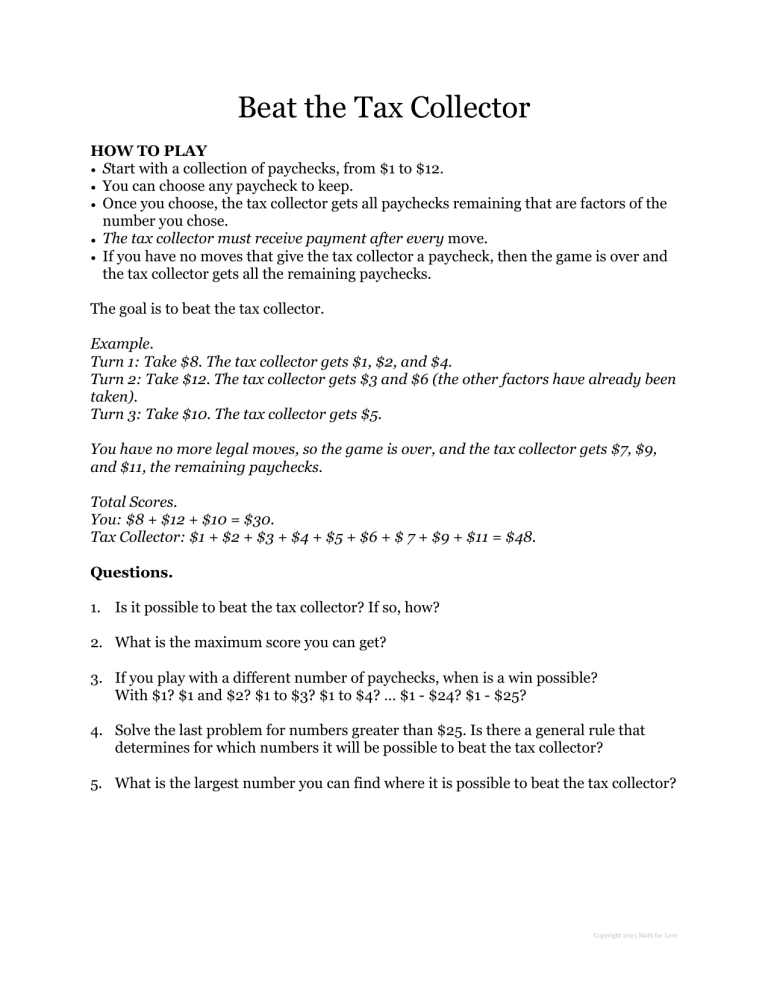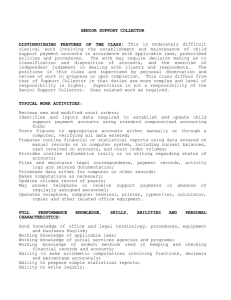
Beat the Tax Collector HOW TO PLAY • Start with a collection of paychecks, from $1 to $12. • You can choose any paycheck to keep. • Once you choose, the tax collector gets all paychecks remaining that are factors of the number you chose. • The tax collector must receive payment after every move. • If you have no moves that give the tax collector a paycheck, then the game is over and the tax collector gets all the remaining paychecks. The goal is to beat the tax collector. Example. Turn 1: Take $8. The tax collector gets $1, $2, and $4. Turn 2: Take $12. The tax collector gets $3 and $6 (the other factors have already been taken). Turn 3: Take $10. The tax collector gets $5. You have no more legal moves, so the game is over, and the tax collector gets $7, $9, and $11, the remaining paychecks. Total Scores. You: $8 + $12 + $10 = $30. Tax Collector: $1 + $2 + $3 + $4 + $5 + $6 + $ 7 + $9 + $11 = $48. Questions. 1. Is it possible to beat the tax collector? If so, how? 2. What is the maximum score you can get? 3. If you play with a different number of paychecks, when is a win possible? With $1? $1 and $2? $1 to $3? $1 to $4? … $1 - $24? $1 - $25? 4. Solve the last problem for numbers greater than $25. Is there a general rule that determines for which numbers it will be possible to beat the tax collector? 5. What is the largest number you can find where it is possible to beat the tax collector? Copyright 2023 Math for Love $1 $2 $3 $4 $5 $6 $7 $8 $9 $10 $11 $12 $13 $14 $15 $16 $17 $18 $19 $20 $21 $22 $23 $24 Copyright 2023 Math for Love


